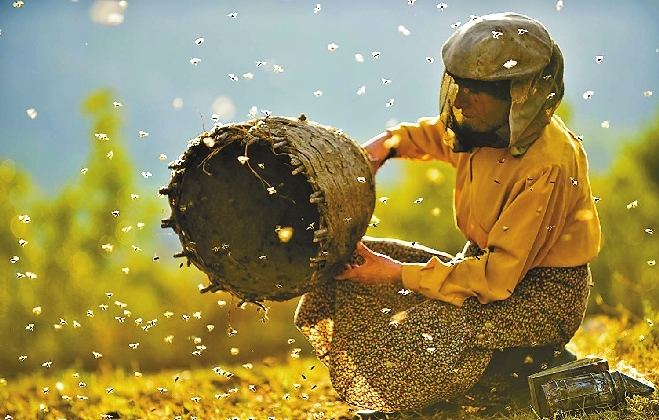

Set in a faraway corner of the Balkan Peninsula, “Honeyland” is an unforgettable character study and a close look at an endangered* tradition. That tradition is wild beekeeping, or bee hunting, and the film’s central character is said to be the only woman in Europe still carrying on the practice in the old-school way — which is to say, in harmony with the insects. Shot over a three-year period, the film began as a commissioned* video for an environmental project and found its heart in Hatidze Muratova, who trusted in the directors and let them into her life. Some scenes look inside the shabby house she shares with her half-blind mother, Nazife, and their dog and cat. Along with its poignant* depiction of a disappearing way of life, it offers a reminder that thoughtless neighbors are a danger everywhere, even in a remote rural village. There’s no electricity in the abandoned scrap of the Macedonian countryside, once settled by Turks, where Hatidze (born in 1964) and her mother are the only residents now. The older woman has been bedbound* for four years: “I have become a tree,” is how she puts it, in poetic fashion. Later, in the depths of winter, she’ll ask, “Is there spring?” Hatidze is busy with the stuff of life, keeping herself and Nazife fed and sheltered by harvesting and selling honey. She makes regular trips (by foot and bus) into the capital, Skopje, to sell jars of her honey to shop owners, touting* its purity and curative powers. When the honey business is completed, she buys hair dye for herself, with very particular ideas about the right shade, and chooses a fan for her mother. In the opening sequence, the camera captures the practiced care with which she removes a slab of stone to check on the swarm within, the honeycomb and the golden ooze. It’s work as ritual. She says her encouragement to the bees. Things are as they should be. Then the new neighbors arrive: a noisy clan of herders* consisting of a couple and their seven kids, with their cattle. When the father, Hussein Sam, becomes interested in starting his own honey business, she offers advice. But he doesn’t follow her advice to “take half, leave half.” He’s interested in immediate returns, not the long view or natural rhythms. (SD-Agencies) | 
